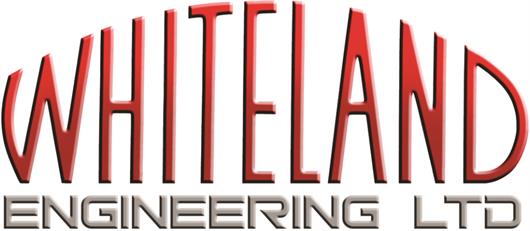 Add My Company
Add My Company
Sign In

New legislation could leave engineering firms vulnerable to fines if their subcontractors are involved in tax evasion. Sean Curran of of legal firm Arnold & Porter Kaye Scholer explains.
The Criminal Finances Act, which came into force in April, has created new offences which mean if an engineering firm’s agents, sub-contractors or other third-parties assist a taxpayer in criminally evading tax, the firm itself may have committed a crime.
Given engineers’ extensive use of third party sub-contractors, they will likely be exposed to a significant amount of risk. To commit one of these new ‘corporate failure to prevent facilitation of tax evasion’ offences, all that needs to happen is that a firm fails to prevent someone acting on its behalf from committing an offence.
The tax evasion component of the new offences may be committed anywhere in the world for a firm to be potentially liable. If convicted, the penalties are potentially huge, with the new law providing for the possible imposition of an unlimited fine.
Engineers are frequently involved in projects that are commercially, legally, and geographically extensive, and which require cooperation with large numbers of agents and sub-contractors. As a result, the opportunities for tax evasion to occur at some stage of a major project are extensive.
The best method of protecting a firm against liability for one of the new offences is to ensure that you do not do business with those who commit such wrongdoing. This can be achieved by implementing preventative procedures to ensure that your sub-contractors abroad have legal tax dealings. Should the measures in place be reasonable in all the circumstances, your firm may have a defence, should one be required.
The first step towards establishing these reasonable preventative procedures is to acquire appropriate internal legal and compliance resources and work with them to implement an effective anti-fraud, bribery and corruption policy. This should involve ensuring all staff members receive some training on potential fraud, bribery and corruption offences. Enhanced training should be implemented for those members of staff who deal with third party agents on a regular basis. Whilst the best policies, procedures, and training programmes are bespoke, generic versions can be obtained ‘off the shelf’. The recently-published model ‘Anti-Bribery Management Systems’, drafted by the International Organisation for Standardisation, provides a comprehensive, basic framework.
Once a policy is in place, the next step is to risk-assess the particular part of the industry and market in which your firm operates, and each sub-contractor with which the firm works. This process should be repeated for each individual transaction that you conduct with a third-party sub-contractor or agent. This will allow your compliance and legal functions to focus their anti-fraud, bribery and corruption activities.
The next step is perhaps the most important; conducting ‘know your client’ (KYC) due diligence checks to verify the identity of the third parties with whom you do business. The identity of the third-party needs to be verified to ensure that it does not include anyone with whom the firm should not be doing business (ie. a public official or ‘Politically Exposed Person’), someone on a sanctions list (ie. from a country which is subject to economic sanctions), or someone who may be involved in criminal wrongdoing.
For businesses, the KYC checks will include company information such as shareholder documentation, lists of directors etc., in order to identify who the individual beneficial owners of the business are. Some KYC policies where a third party will be purchasing/acquiring something will also require the provision of financial information, such as accounts, or an explanation of where funds come from. Once these steps are in place, companies need to implement ongoing monitoring and renewal of the KYC process on a risk-based basis.
Most engineering firms should already have some requirement to carry out KYC in place. The measures a firm is likely to need to implement as a result of the new law are ongoing review and monitoring, and enhanced KYC/due diligence. Enhancements to KYC may focus on asking third parties for certified copies of annual tax audits and for copies of anti-fraud/bribery/corruption policies and procedures. Firms may also wish to conduct periodic audits/random spot-checks of their sub-contractors’ policies and procedures.
Once you have implemented/revised your procedures to take account of the new legislation, you need to reach out to third parties such as sub-contractors. Inform them of the documentation they will need to provide to allow your firm to satisfy itself that its partners do not facilitate tax evasion. Revising/amending contracts to ensure that the sub-contractor is obliged to produce such documentation may also be necessary.
Some firms may also wish to begin using ‘integrity pacts’. These are contractual agreements, the parties to which agree to behave in a legal and ethical manner for the duration of a project. Integrity pacts may contain obligations that each party must meet to demonstrate to the other that they are compliant with the law (eg. by providing reports at certain intervals). They can also be useful for signalling to a law enforcement agency that a firm has a genuine commitment to preventing fiscal crime.
It’s important to remember that you may be able to defend yourself against accusations under the new law by having “such prevention procedures as it was reasonable in all the circumstances to expect [the firm] to have in place”. There’s an element of subjectivity here; an engineering firm must only have policies in place that are appropriate for the risks that it is likely to encounter in the course of its specific business.
For more information on Avoiding falling foul of the Criminal Finances Act talk to Whiteland Engineering Ltd
Enquire Now
More News
List your company on FindTheNeedle.
